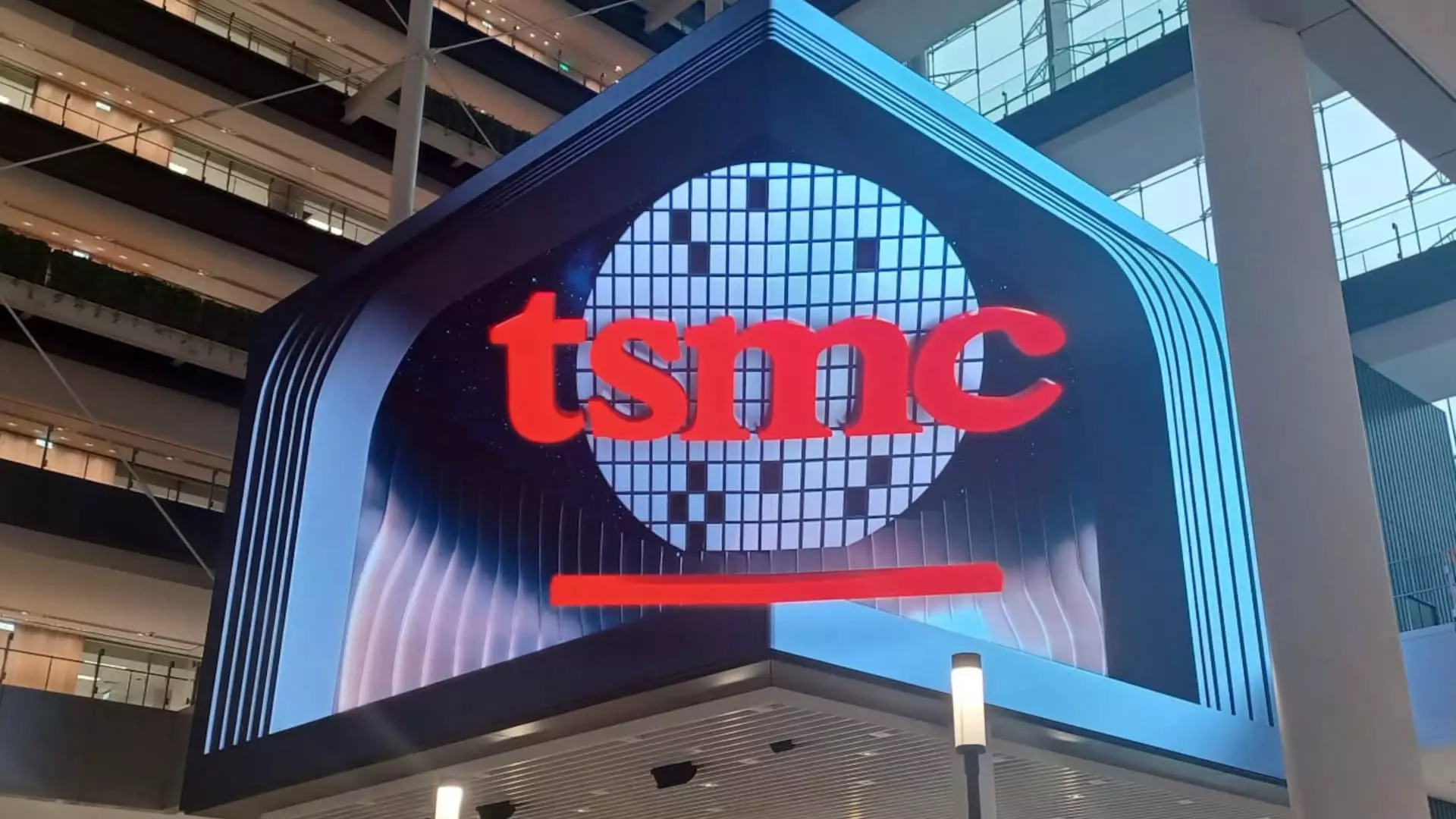Taiwan Semiconductor Manufacturing Company (TSMC) has once again demonstrated its dominance in the semiconductor landscape with remarkable fourth-quarter results for 2024. The firm registered a net revenue of 868.46 billion New Taiwan dollars (approximately $26.36 billion), surpassing analyst predictions of NT$850.08 billion. A significant driver of this growth is the unprecedented demand for advanced chips, particularly those utilized in artificial intelligence (AI) applications. TSMC reported a net income of NT$374.68 billion, outpacing expectations of NT$366.61 billion. This stellar performance marks a 57% increase in profits year-over-year, alongside a 38.8% growth in revenue, highlighting the company’s robust position in the market as the global leader in contract chip manufacturing.
The data showcases an organization well-prepared to cater to the evolving technological landscape. TSMC’s projections for fourth-quarter revenue were strategically set between $26.1 billion and $26.9 billion, indicating a poised approach in managing market expectations while still delivering exceptional results.
A deep dive into TSMC’s financials reveals that a substantial portion of its revenue—53%—is generated from its high-performance computing (HPC) division, which encompasses cutting-edge AI technologies and advanced 5G applications. This segment alone contributed to a 19% revenue increase from the previous quarter, corroborating the rising tide of AI and 5G demand as cornerstones for future growth.
Industry analysts emphasize that TSMC’s collaboration with leading technology firms, such as Nvidia and Apple, has positioned it uniquely to capitalize on this megatrend toward AI. Brady Wang, an associate director at Counterpoint Research, noted the substantial uptick in AI chip demand, with specific mentions of the contributions from Apple’s most recent iPhone model, further underlining the critical role of innovation in driving sales.
As a testament to its successful strategies, TSMC reported a remarkable annual revenue total of NT$2.9 trillion for 2024, the highest since the company’s inception in 1994. The enthusiasm surrounding TSMC’s growth trajectory is palpable, with executives like CFO Wendell Huang projecting that AI-related accelerator products could account for a significant share of the company’s revenues, nearing “mid-teens percentage” in the coming year. Huang also shared an optimistic outlook for AI acceleration revenue, predicting a doubling by 2025.
Such forecasts align with broader trends in technology, where AI applications are becoming increasingly integral across various sectors. The implications of this growth are multifaceted, potentially reshaping industries and consumer behavior while positioning TSMC at the forefront of technological advancement.
Looking Ahead: Navigating Market Hurdles
Despite TSMC’s promising outlook, the company faces challenges that could impede its growth trajectory. One main concern is the looming uncertainty over U.S. restrictions on advanced semiconductor sales to China, coupled with the unpredictable trade policy of President-elect Donald Trump. TSMC’s Chairman and CEO C.C. Wei has publicly acknowledged these challenges while maintaining a low profile amidst political turbulence. Notably, Trump’s administration has threatened potential tariffs on imported goods, which could have ramifications for TSMC’s operations moving forward, given its reliance on international markets.
Nonetheless, industry analysts remain bullish on TSMC’s potential in 2025. Counterpoint’s Wang asserts that the increasing diversity and volume of demand for AI applications will facilitate strong revenue growth, even amid geopolitical tensions.
The robust performance has positively influenced TSMC’s stock, with shares experiencing an impressive 81% increase throughout 2024. Following the earnings announcement, the company’s shares climbed 3.75% on Thursday, reflecting investor confidence in TSMC’s market strategy and future performance. This trend extends beyond TSMC, as semiconductor stocks across Europe also saw significant appreciation, underscoring a broad-based optimism for the sector’s trajectory.
TSMC stands as a linchpin in the global semiconductor economy, driven by surging AI demand and innovative advancements. As it deftly navigates the complexities of geopolitical challenges and market dynamics, stakeholders remain vigilant about its capacity to sustain growth and continue setting records.

